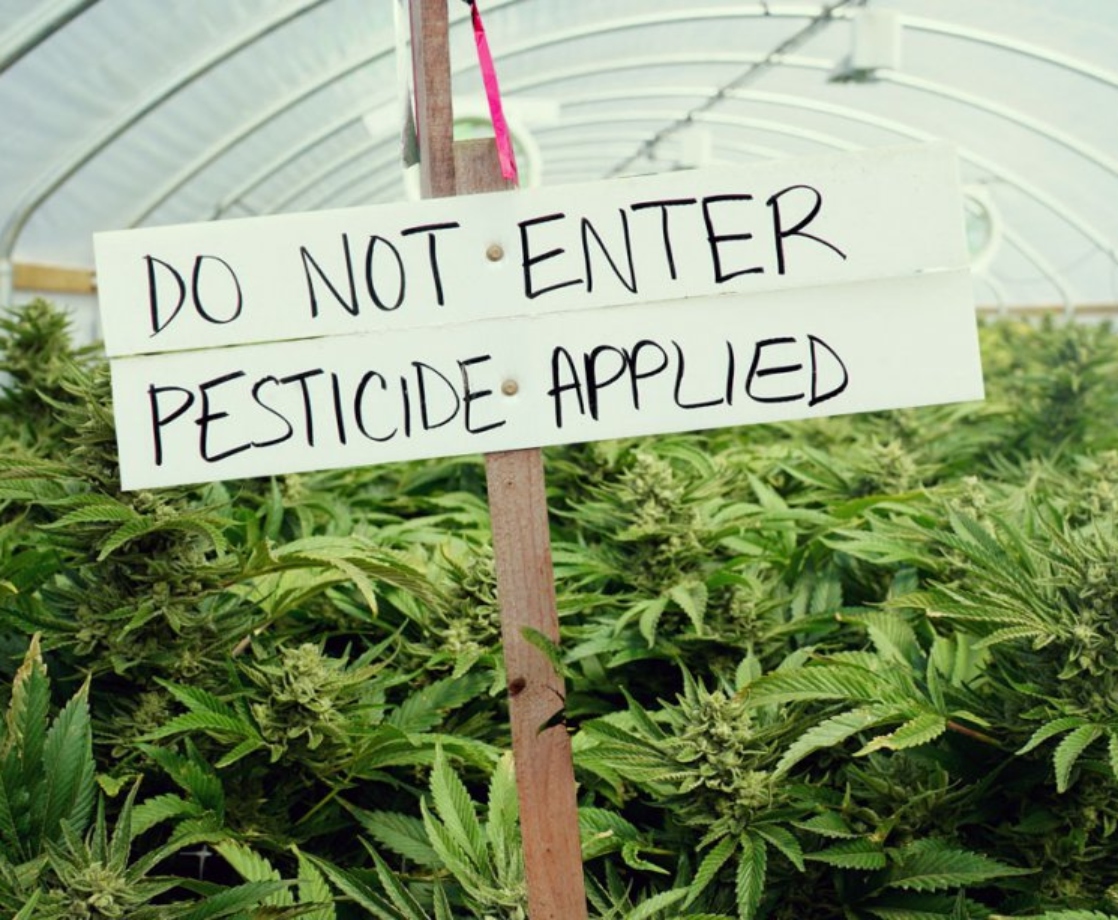A Brooklyn biotech startup just scored a cool quarter million in government funding to research new ways to clean toxic pesticides off of cannabis plants.
In August, the National Science Foundation awarded a $250,000 two-year grant to Brooklyn Bioscience, a startup created by the New York University Tandon School of Engineering staff. This grant will help fund the company’s research into effective ways to remove and detoxify organophosphate-based pesticides, which cannot easily be removed from crops by conventional means.
Organophosphates (OPs) are one of the most effective forms of pesticides currently available, and currently account for over a third of all chemical pesticides used globally. Despite being highly effective, these chemicals are also one of the most hazardous pesticides being used today. OPs are dangerous neurotoxins, and due to their hydrophobic nature, they cannot easily be washed off a plant that has been doused in them. The societal and environmental costs of using this dangerous chemical have been estimated at $12 billion a year.
Brooklyn Bioscience is currently researching a new way to remove this dangerous chemical from crops. Researchers used protein engineering methods to alter the enzyme phosphotriesterase (PTE) into a stable, crystalline powder which can be mixed with water. When sprayed on plants grown with pesticides, this form of PTE can break OPs down into “relatively benign” chemicals that can more easily be removed with water.
Gallery — Weed Porn and Cannabis Up-Close:
In a press release, NYU Tandon notes that this new product “is of particular interest to cannabis farmers, because OPs, when vaporized and inhaled, are exponentially more toxic than when ingested by mouth.” There are no federal regulations concerning safe levels of OPs or other pesticides on cannabis, due to the ongoing prohibition of marijuana, but most states now require testing to ensure that cannabis products are free of pesticide residue.
“In states such as California and Colorado, which are introducing strict regulations governing the cultivation of cannabis, a much lower level of OPs is allowed than that considered acceptable in fruits and vegetables,” the press release explained. These regulations have fueled disputes between pot and avocado farmers in California, over concerns that runoff from avocado pesticides could contaminate nearby pot farms.
Researchers also note that this product will likely also appeal to the wine industry, because PTE can remove OPs from grapes before fermentation. Tea farmers have also expressed interest, as an excess of OP residue has negatively impacted the global tea market in recent years, especially for green tea.
“Agricultural analysts have calculated that the pesticide segment of the market represents $17 billion, with more than a tenth of that corresponding directly to the sales of OPs,” said Jin Kim Montclare, professor of chemical and biomolecular engineering at NYU Tandon and principal of Brooklyn Bioscience. “Given the importance of sustainability and environmental health, it’s more vital than ever to develop biologically-based solutions for crop protection, and with the support available at NYU Tandon, Brooklyn Bioscience is making great strides.”











